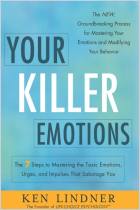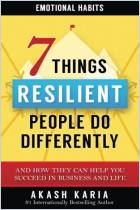
How to Take the High Road
When someone provokes you, it’s easy to react without thinking. Learn to slow down and respond in ways you’ll be proud of
Read offline
Recommendation
Picture it: A relative questions your life choices during dinner; a colleague criticizes your work; a stranger makes a snarky remark in the grocery store. Situations like these can elicit strong emotions and, if you bite back, may lead to full-blown arguments. At 2016’s Democratic National Convention, Michelle Obama proclaimed, “When they go low, we go high.” Alas, taking the high road isn’t always easy. It requires practice, compassion, and a strong moral compass. Alissa Hebbeln, a clinical therapist, and Russell Kolts, a clinical psychologist, examine how to rise above with grace and integrity.
Summary
About the Authors
Alissa Hebbeln is a clinical intern therapist. Clinical psychologist Russell Kolts is a professor at Eastern Washington University, where he researches compassion-focused therapy.

























Comment on this summary or Iniciar a Discussão